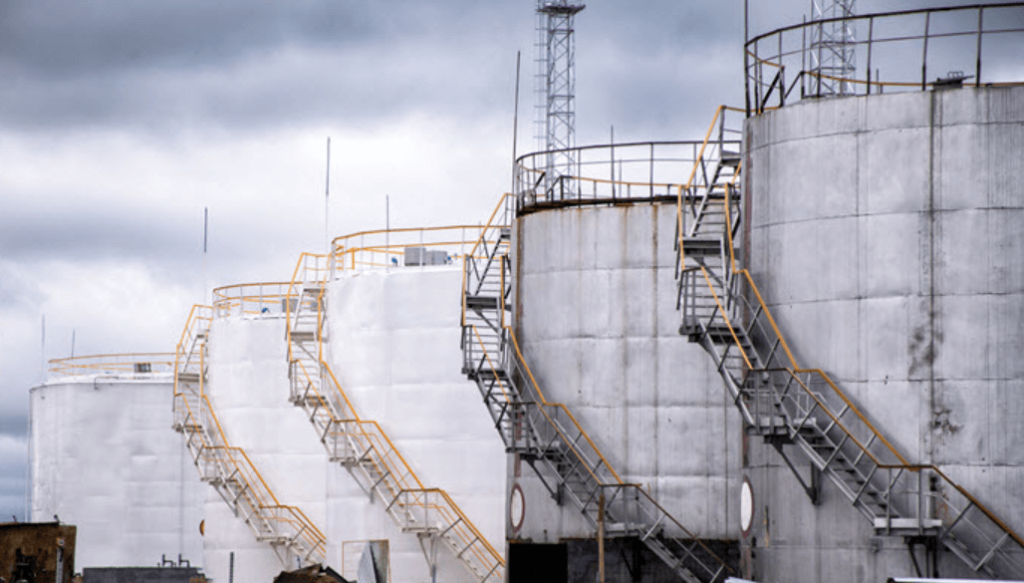Why It’s Crucial To Have Your Above-Ground Storage Tank Inspected

If you own an above-ground storage tank, ensuring its safety and integrity through regular crucial tank inspections is paramount.
Not only is this a compliance requirement with regulations, but it also helps prevent leaks and corrosion that could lead to environmental consequences and financial risks. By taking proactive measures, you can mitigate potential issues before they escalate into costly disasters.
Regular inspections allow you to identify any signs of wear and tear, structural deficiencies, or equipment malfunctions. This data-driven approach enables you to make informed decisions regarding maintenance or repairs.
Additionally, inspections help you stay compliant with industry standards and government regulations.
By investing in regular inspections for your above-ground storage tank, you are ensuring the well-being of your facility, workforce, and surrounding environment. Don’t underestimate the importance of these routine checks; they offer long-term benefits such as increased operational efficiency, reduced downtime due to unexpected failures, and overall peace of mind knowing that your tank is safe and secure.
Key Takeaways
Regular inspections of above-ground storage tanks are necessary for safety, compliance, and integrity.
Inspections help prevent leaks, corrosion, and environmental damage.
Data-driven inspections inform maintenance and repairs, extending the tank’s lifespan and minimizing risks.
Implementing a preventative maintenance program and prioritizing risk management can save costs and ensure compliance with regulations.
Compliance with Regulations
You need to make sure your above-ground storage tank is inspected regularly to stay in compliance with regulations and avoid any costly fines or penalties.
Regulatory compliance is crucial because it ensures that your tank meets all legal obligations set forth by government agencies. Failure to comply can result in severe consequences, including shutdowns and legal actions.
By conducting regular inspections, you can identify any potential issues or non-compliance areas and address them promptly. Inspections involve thorough examination of the tank’s structural integrity, equipment functionality, leak detection systems, and overall safety measures.
Ensuring regulatory compliance not only protects your business from financial losses but also promotes a safe working environment.
Proper maintenance and inspection procedures will be discussed next, which are essential for ensuring safety and integrity of your above-ground storage tank.
Read also: Get most out of 5120x1440p 329 tanks wallpapers
Ensuring Safety and Integrity
Ensure the safety and integrity of your above-ground storage tank by regularly inspecting it. Conducting regular inspections is essential for identifying any potential risks and ensuring that your tank is in compliance with regulations.
A thorough risk assessment should be performed to evaluate the structural integrity, corrosion levels, and overall condition of the tank. This assessment will help determine if any maintenance procedures or repairs are necessary to prevent future issues. By adhering to recommended maintenance procedures, such as cleaning and coating applications, you can extend the lifespan of your tank and minimize the risk of leaks or corrosion.
Taking these proactive measures will not only ensure a safe working environment but also protect against costly damage to your assets.
Transitioning into preventing leaks and corrosion, proper maintenance practices are crucial in mitigating these risks.
Preventing Leaks and Corrosion
Regular inspections help to prevent leaks and corrosion, keeping your above-ground storage tank in optimal condition. By implementing preventative maintenance measures, you can significantly reduce the likelihood of costly repairs or even tank failure.
Here are three key reasons why preventing leaks and corrosion is crucial:
1. Extended lifespan: Regular inspections allow for early detection of potential issues, enabling timely repairs that can extend the lifespan of your storage tank.
2. Improved efficiency: Leaks and corrosion can lead to product loss and decreased efficiency. Identifying and addressing these problems promptly ensures maximum productivity.
3. Cost savings: Preventing leaks and corrosion through inspections reduces the need for expensive repairs or replacement, resulting in significant cost savings over time.
By taking proactive steps to maintain your above-ground storage tank, you can avoid environmental consequences associated with leaks or spills.
Avoiding Environmental Consequences
To avoid environmental consequences, it’s important to be proactive in preventing leaks and corrosion in your above-ground storage tank. Not only can leaks and corrosion lead to costly repairs, but they also pose a significant threat to the environment.
The environmental impact of a leaking or corroded tank can be severe, with potential contamination of soil, groundwater, and nearby bodies of water. This can result in harmful effects on ecosystems and wildlife.
By implementing regular inspections and maintenance procedures, you can identify any potential issues early on and take prompt action to prevent leakage or corrosion from occurring. Cost-effective solutions, such as protective coatings or cathodic protection systems, can significantly reduce the risk of environmental damage while ensuring the longevity of your storage tank.
Taking these preventive measures will help mitigate financial risks associated with environmental cleanup efforts that may arise due to neglecting proper maintenance practices.
Transitioning into mitigating financial risks…
Mitigating Financial Risks
You can minimize the financial risks associated with neglecting proper maintenance practices by implementing cost-effective solutions such as protective coatings or cathodic protection systems. These solutions provide a layer of protection for your above-ground storage tank, preventing corrosion and extending its lifespan. By investing in these measures, you can significantly reduce the chances of tank failure and the costly consequences that come with it.
To effectively manage financial planning and risk management for your tank, consider the following:
Implement a preventative maintenance program to identify and address potential issues before they escalate.
Regularly monitor tank conditions through inspections and testing to detect any signs of degradation or vulnerability.
By prioritizing financial planning and risk management, you not only protect yourself from expensive repairs or replacements but also ensure compliance with environmental regulations. This proactive approach allows you to maintain a safe operating environment while maximizing your long-term investment.
Transitioning into the subsequent section about the ‘long-term benefits of regular inspections’…
Long-Term Benefits of Regular Inspections
By regularly inspecting your tank, you’ll experience numerous benefits in the long run. Not only does regular inspection ensure compliance with regulations and mitigate financial risks, but it also offers cost-effective maintenance and prolongs your equipment’s lifespan.
The primary advantage of regular inspections is that they allow for early detection of any potential issues or defects in your above-ground storage tank. This early detection enables prompt repairs or replacements, preventing small problems from escalating into larger, more costly ones.
Moreover, regular inspections help identify areas of improvement in your tank’s maintenance practices, reducing the risk of unexpected failures and subsequent repair expenses. By investing in routine inspections, you can significantly extend the lifespan of your above-ground storage tank while minimizing overall maintenance costs over time.
Conclusion
In conclusion, it’s imperative to prioritize regular inspections of your above-ground storage tank. By doing so, you ensure compliance with regulations and maintain safety and integrity. Regular inspections also help prevent leaks and corrosion, avoiding environmental consequences and mitigating financial risks.
The long-term benefits of these inspections can’t be overstated. They help identify potential issues early on, saving you both time and money in the future. Remember, investing in inspections now will lead to a secure and efficient operation in the long run.








